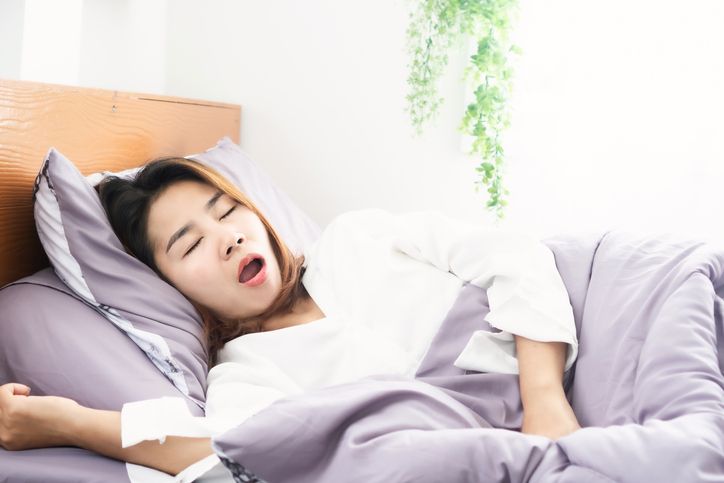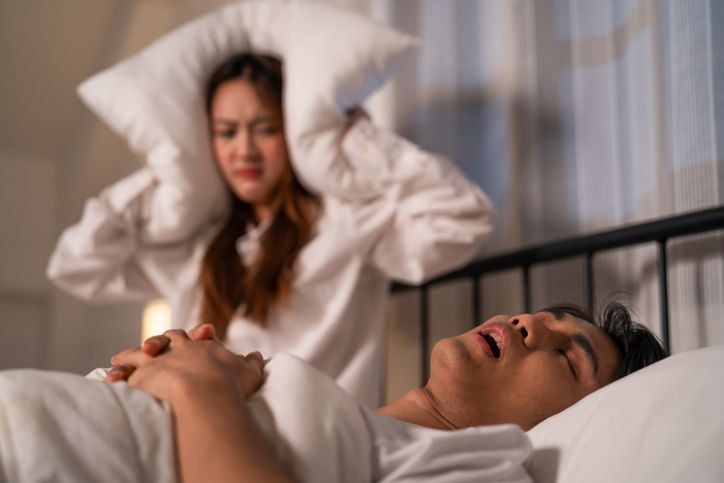- Home
- Trend
- Weight Loss Strategies
- Acne Tips
- Hair Health Information
- Blemish Removal Tips
- Acne Scar Removal Tips
- Muscle Building Techniques
- Intimate Care Tips
- Postpartum Intimate Care
- Eye Bags Wiki
- Tips for Face Slimming
- Secret of Permanent Hair Removal
- Breast Enlargement Tips
- Cure to Snoring
- Marionette Lines
- Skin-Tightening Secrets

免費體驗
Fotona 4D NightLase Snoring Treatment
1 Minute Self-Registration
Date should not be before minimal date
Snoring is a common occurrence during sleep, but is it bad for your health? Let's delve into the world of snoring, sleep apnea, and related sleep disorders to uncover the answers.
1
What Considered As Snoring & Why It's Bad?

2
5 Reasons Why You Can't Stop Snoring

1. Your sleep position is wrong
2. You have a Deviated Septum
3. You have Sleeping Disorders
4. You drink too much alcohol
5. You have Excess weight
- 6 Popular Snoring Gadgets + 1 Professional Treatment (with Trial Offer!)
- Can You Buy A CPAP Machine Online? 4 Types Of People Who Shouldn’t Use One & 1 Solution To Stop Snoring
- Is Snoring A Disease? You May Already Have Sleep Apnea|6 Anti-Snoring Methods & Food Remedies
- 12 Ways To Relieve Nasal Congestion + 7 Tools To Ease Blocked Nose & Allergic Rhinitis — At Least 3 You Haven’t Tried!
3
Potential Risks When Your Snoring Occurs Too Often

1. Daytime Sleepiness and Fatigue
2. Increased Risk of High Blood Pressure and Heart Disease
3. Disrupted Sleep Patterns and Poor Sleep Quality
4. Excessive Sleepiness During the Day, Impacting Daily Activities and Safety
4
Non-Invasive Snoring Treatment: Get You & Your Bed Partner A Happy Sleep


免費體驗
Fotona 4D NightLase Snoring Treatment
1 Minute Self-Registration
Date should not be before minimal date
5
The Tech Revolution in Sleep Apnea Diagnosis and Management

Home Sleep Testing Kits
Sleep Tracking Apps
Telemedicine Consultations with Sleep Specialists
6
Last Few Words


免費體驗
Fotona 4D NightLase Snoring Treatment
1 Minute Self-Registration
Date should not be before minimal date
FAQ

1. What are the potential consequences of loud snoring on overall health?
Loud snoring can be a sign of underlying sleep disorders like sleep apnea, which, if not addressed, can increase the risk of developing conditions such as high blood pressure, heart disease, stroke, and diabetes. These health risks highlight the importance of addressing snoring and its potential underlying causes.
2. How does weight loss contribute to reducing snoring?
Weight loss can help reduce snoring by addressing factors like excess fatty tissue around the neck and throat area, which can obstruct the airway during sleep. By shedding excess weight, individuals may experience a reduction in airway blockage and bulky throat tissue, leading to improved airflow and reduced snoring.
3. What role does a sleep specialist play in managing snoring problems?
A sleep specialist plays a crucial role in diagnosing and managing snoring problems. They can conduct comprehensive sleep studies to identify sleep disorders like sleep apnea, provide personalised recommendations for lifestyle changes, prescribe oral appliances to improve airflow, and recommend surgical interventions if necessary to address snoring and its underlying causes.
4. How can lifestyle changes contribute to better sleep quality and reduced snoring?
Lifestyle changes such as maintaining a regular sleep schedule, avoiding alcohol consumption before bedtime, and using specialised pillows or oral appliances designed to reduce snoring can significantly improve sleep quality. These changes can help open up the airway, minimise snoring episodes, and promote restful sleep.
5. What are the risks associated with breathing interruptions during sleep?
Breathing interruptions during sleep, commonly seen in conditions like sleep apnea, can lead to daytime sleepiness, decreased cognitive function, and an increased risk of accidents, especially while operating vehicles. Addressing these breathing interruptions through proper diagnosis and treatment is crucial for overall health and safety.








